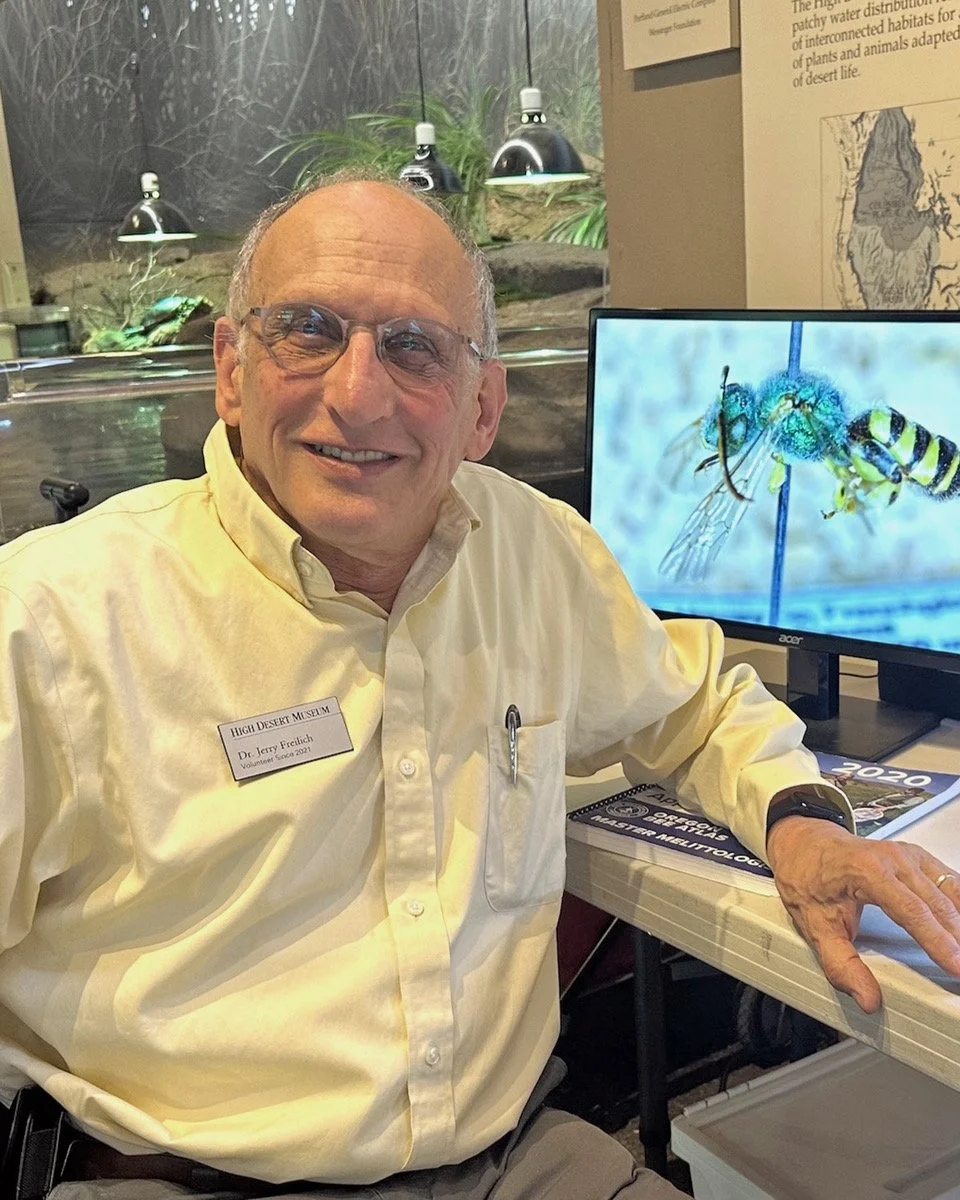Biodiversity Begins with a “B”
Dr. Jerry Freilich
:Most people can name perhaps three or four kinds of bees. They are incredulous to learn that there are actually 4,000 species of native bees in North America and this does not include honey bees (which are non-native). As a general fact, most people have no clue about the biodiversity that surrounds them. This is partly because of steadily increasing urbanization. Partly because our lives are so specialized. And partly because society has not seemed to value natural history.
Today we speak of “Ecosystem Services.” We have a general understanding that living things create the oxygen we breathe, clean the water we drink, and provide every molecule of food we eat. Yet we have only the vaguest notion of the species that provide these services. As the human population of the earth doubles and triples, our natural support system is stressed. And as our pollution causes the climate to change, it is cavalier to think that those Services will always be there for us. This lecture will focus on biodiversity in one small corner of the animal world. This program uses the bees as a microcosm of the larger world of biodiversity that sustains us. The talk is intended to expand our thinking to those other arenas of the ecosystem where we know virtually nothing and to encourage people to dive deeper into their knowledge of the natural world.
Jerry Freilich is a Philadelphia native who started his career as Curatorial Assistant at the Academy of Natural Sciences at 11 years old. He has a masters in Environmental Education from Cornell University and a PhD in entomology from the University of Georgia. He was Science Director for the Wyoming Chapter of The Nature Conservancy and subsequently worked 25 years at six national parks all around the US as a ranger, naturalist, and research scientist. He regards his life’s mission as devotion to the joy and splendor of biodiversity. He’s worked on biodiversity studies, especially bees, since 1996.
Dr. Freilich will have a microscope and insects available for audience members to view starting at 6:00pm.

